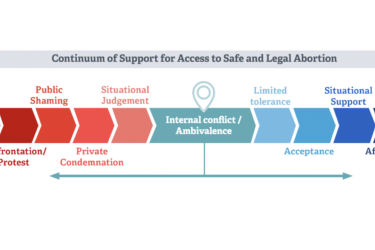
Previously, Covering Health has addressed two kinds of potential conflicts of interest that health journalists should watch out for: those of journal article authors and those related to sponsors of journalist trips or other training opportunities.
For freelancers, there’s yet another COI maze to navigate: ensuring that work for one client doesn’t create a conflict for another, present or future.
This sounds simple enough: Don’t cover the same research for two competitors, for example. But in today’s freelance ecosystem, avoiding these conflicts has become more complex, especially with the various types of clients freelancers might have.
Many freelancers write both journalism for publications and marketing “content” for companies. They generally try to avoid conflicts by writing about completely different topics for each client.
But there is a grayer area between companies and journalism publications: universities and foundations. Should someone writing for an advocacy organization, for example, avoid writing about that topic for a journalism publication? I encountered this question when a vaccine advocacy group asked me to participate on a committee for them. I declined because I write about vaccines for journalism publications.
Ethical guidelines vary
There was another recent experience that I was more uncertain about, so I sought the advice of more experienced reporters. The somewhat conflicting advice I received revealed that navigating these ethical questions is no simple task but that the only reliable solution is constant transparency.
I had been asked by the public relations office of a department at a large, well-known research university to write about a study by one of their researchers. What I wrote would become both a story on their website and the press release sent out to other journalists. The former sounded fine, but the second part seemed problematic. Should I, as a journalist who frequently writes about research studies from a wide range of universities, write about a study in a way that would become an official press release?
Clearly I should not write about that study for any journalistic outlets. And I assumed it would be inappropriate – if I took the assignment – to write about that very specific topic and/or about the researcher for other journalism outlets, at least for a period of time. (That, too, isn’t clearly defined though – one year? Two? Five? Ever?) But if I took the assignment, did that mean I could not write about “any” research coming out of that university, at least for a period of time? That was my primary concern.
I called the SPJ ethics hotline and spoke to a professor of journalism ethics who suggested that it shouldn’t be a conflict, that I should be fine taking the assignment and then writing about research from the same university (though not that very narrow topic of research) for other outlets. But he was answering from a very general point of view. The SPJ Code of Ethics is a helpful general guide, but it often does not clarify very specific concerns within subspecialties of journalism (such as health and science). Fortunately, AHCJ offers a Statement of Principles which offers more specific guidelines for reporting on health. Even this code, however, does not address the unique circumstances freelancers may find themselves in when needing to earn a living while remaining ethical journalists.
Veterans weigh in
I knew the answer to my question would depend on the outlets I wanted to write for. A women’s glossy magazine probably would care less if I had written a press release for the university and then wrote about different research from that university. But The New York Times might (though that’s not entirely clear when you look at its ethics handbook). So I put the question to two editors I have written for and whose opinions I trust: Robin Lloyd at Scientific American and Laura Helmuth at Slate. Both gave me permission to share their answers:
Robin Lloyd:
“In the current work environment for journalists, I think we all have to decide for ourselves what we think is ethical behavior. I don’t feel good telling hard-working journalists barely making a middle-class income that if they did some publicity writing for a university that they should never cover that university again. But that is the high bar that most journalists used to adhere to or expect others to adhere to. As an assigning editor, I would expect and appreciate disclosure of any potential conflicts of interest. In this case, I am sorry but if someone disclosed that they had done publicity work for a university and then were pitching me a story involving work done by researchers working at that university, I would think twice about making that assignment. I know for myself that I have implicit and known biases in my mind toward places where I have done publicity work.”
Laura Helmuth:
“This is a tricky one, and there’s no clear answer. I think it would prevent you from writing about any research that comes straight out of (that university) for the New York Times or Washington Post for a year. (A year tends to be the magic COI cutoff.) And it would probably get in the way of writing for Nature or Science, definitely about that lab and possibly department or university. For other places, it’s something you’d mention to your editor to see if there’s any conflict if you were assigned or pitched a story that was largely about (that university’s) research. In most cases, the editor would say that it’s fine, as long as the new study isn’t related to the one you wrote the press release about.”
So, the answer? It depends – but be transparent. (I turned down the university assignment, by the way.)











